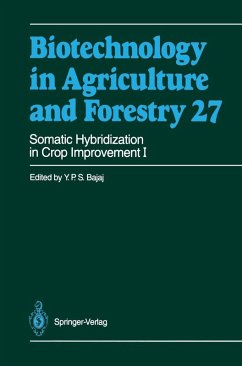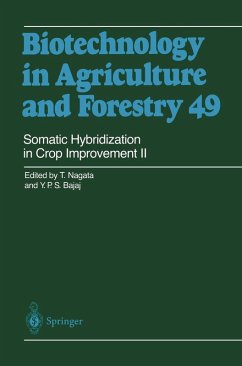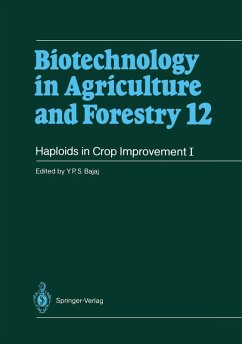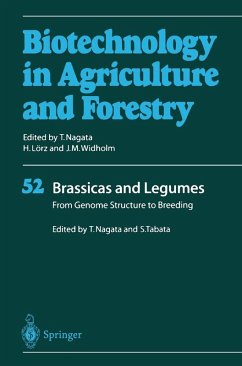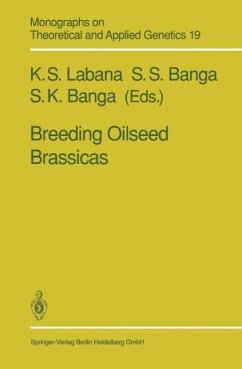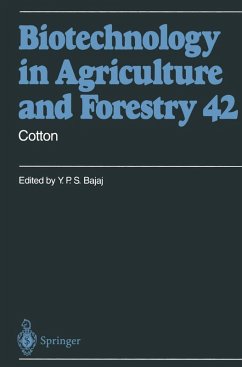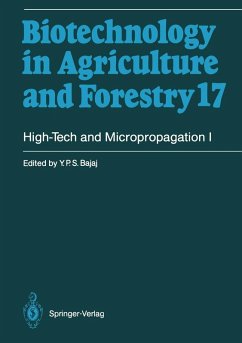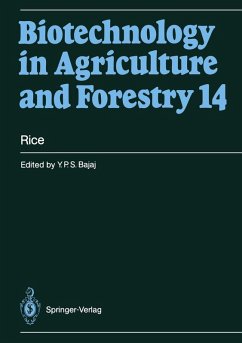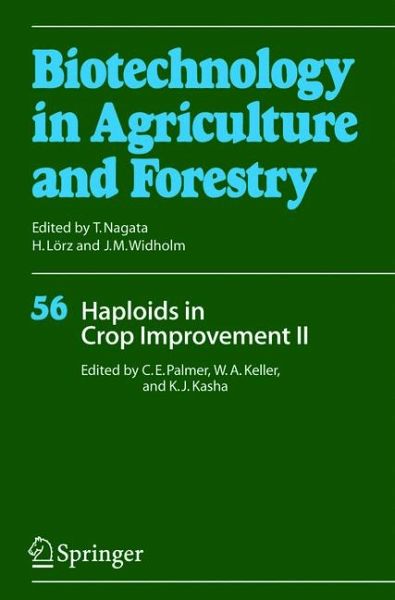
Haploids in Crop Improvement II (eBook, PDF)
Versandkostenfrei!
Sofort per Download lieferbar
160,95 €
inkl. MwSt.
Weitere Ausgaben:

PAYBACK Punkte
80 °P sammeln!
Doubled haploid technology is an important tool for plant breeding. It allows for significant time reduction in the achievement of homozygous breeding lines of value in crop improvement.This volume provides an excellent overview of haploid induction and the application of doubled haploids. The authors emphasize advances made in the understanding of microspore embryogenesis, but treat also advances in gynogenesis and the manipulation of parthenogenetic haploid development.The text contains a thorough discussion of the application of haploidy to the improvement of a number of species from variou...
Doubled haploid technology is an important tool for plant breeding. It allows for significant time reduction in the achievement of homozygous breeding lines of value in crop improvement.
This volume provides an excellent overview of haploid induction and the application of doubled haploids. The authors emphasize advances made in the understanding of microspore embryogenesis, but treat also advances in gynogenesis and the manipulation of parthenogenetic haploid development.
The text contains a thorough discussion of the application of haploidy to the improvement of a number of species from various families, including Brassicaceae, Poaceae, and Solanaceae. The various methods applicable to these species are described in detail. Each chapter contains critical evaluation of the scientific literature and an extensive list of references. This volume is ideally suited for plant breeders, geneticists, and plant cell biologists.
This volume provides an excellent overview of haploid induction and the application of doubled haploids. The authors emphasize advances made in the understanding of microspore embryogenesis, but treat also advances in gynogenesis and the manipulation of parthenogenetic haploid development.
The text contains a thorough discussion of the application of haploidy to the improvement of a number of species from various families, including Brassicaceae, Poaceae, and Solanaceae. The various methods applicable to these species are described in detail. Each chapter contains critical evaluation of the scientific literature and an extensive list of references. This volume is ideally suited for plant breeders, geneticists, and plant cell biologists.
Dieser Download kann aus rechtlichen Gründen nur mit Rechnungsadresse in A, B, BG, CY, CZ, D, DK, EW, E, FIN, F, GR, HR, H, IRL, I, LT, L, LR, M, NL, PL, P, R, S, SLO, SK ausgeliefert werden.



